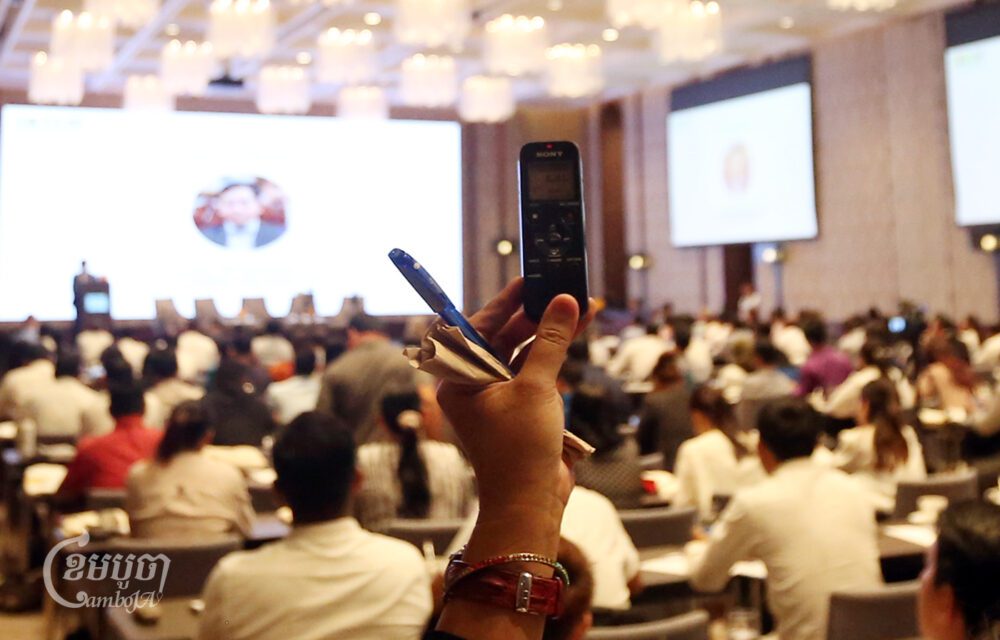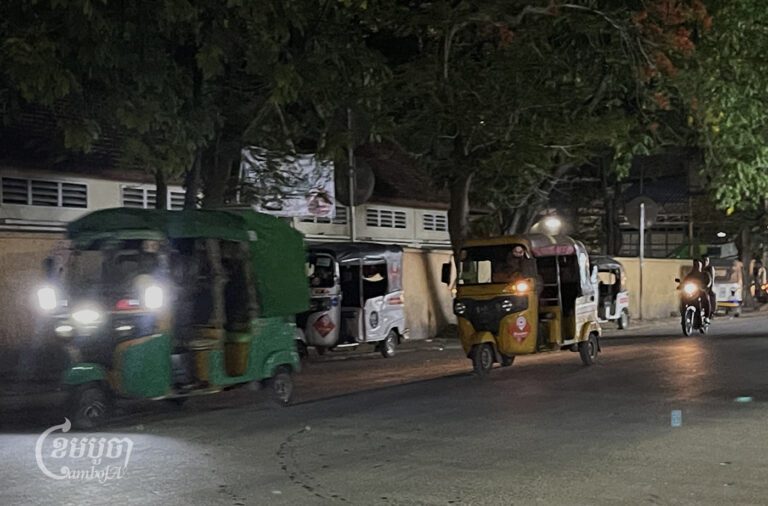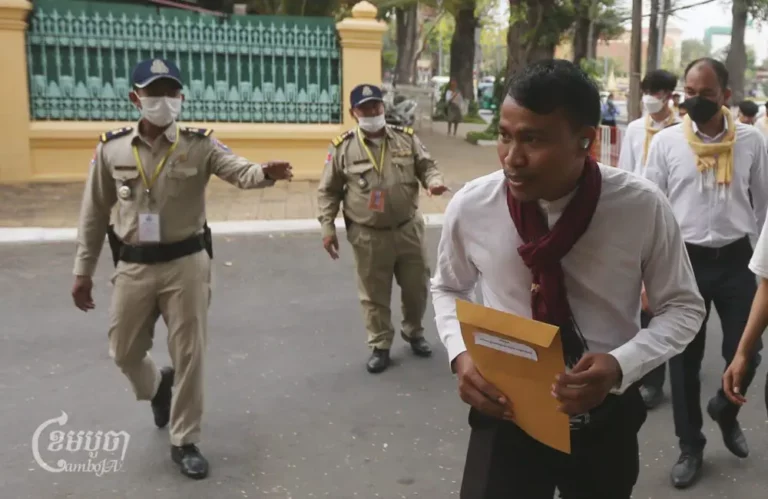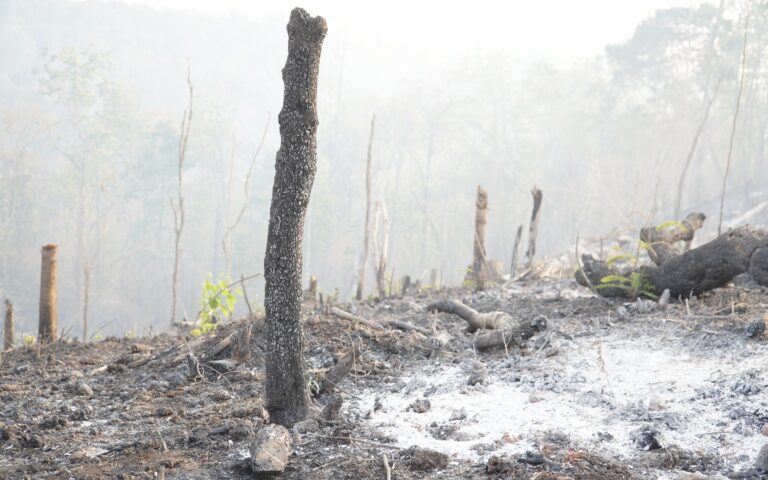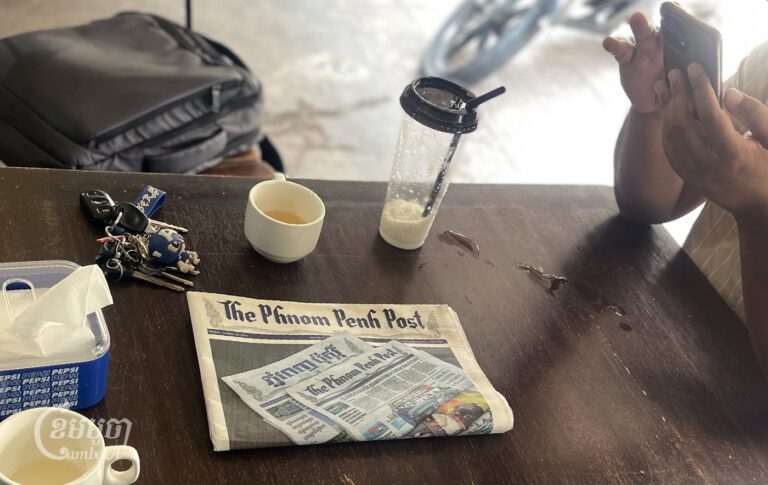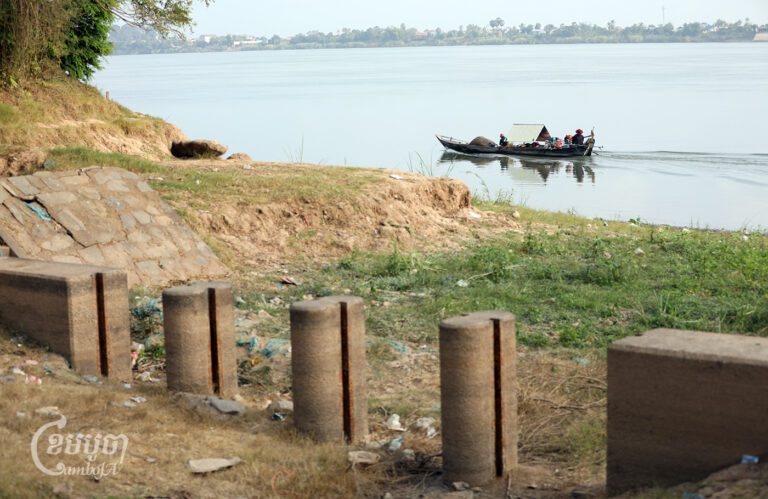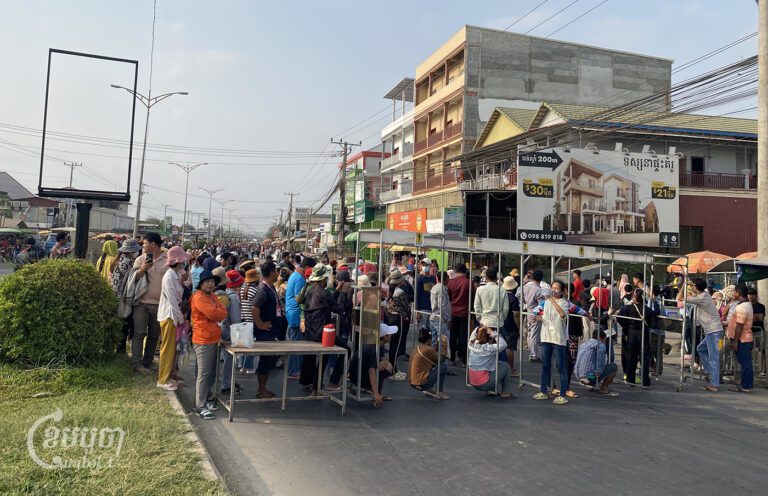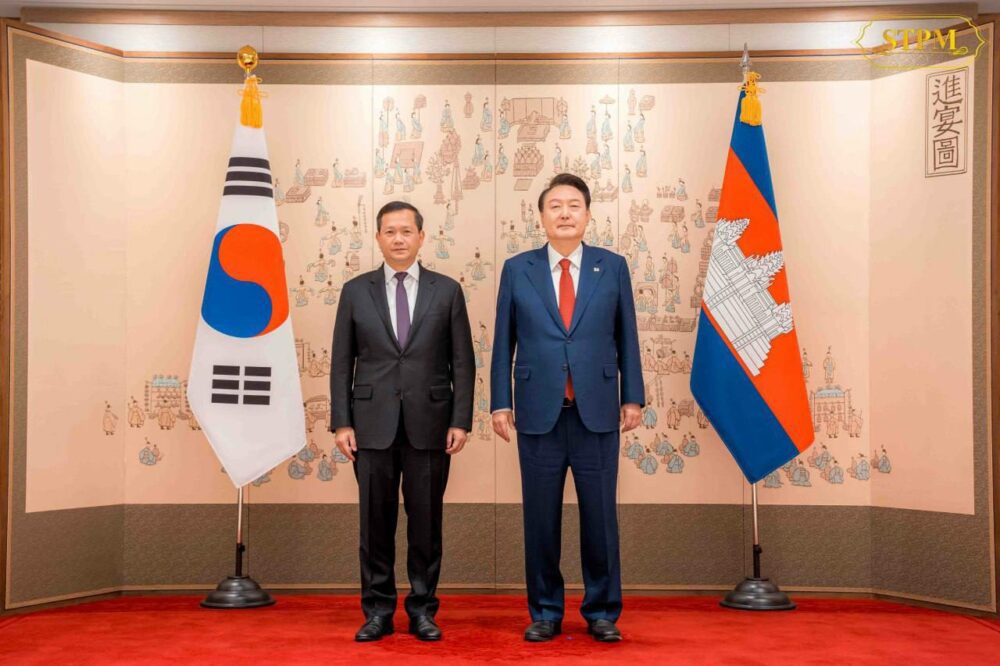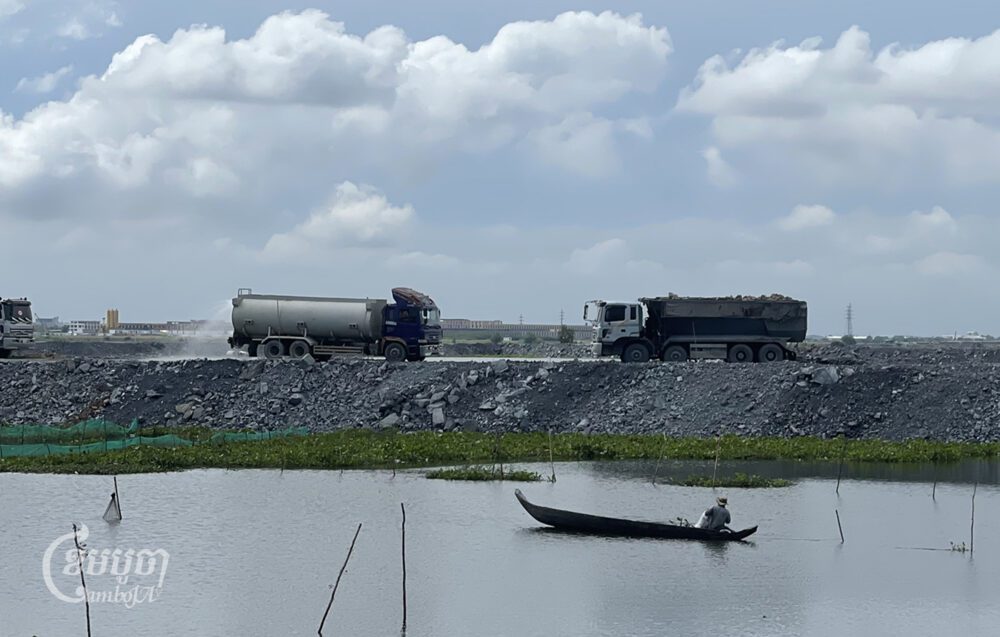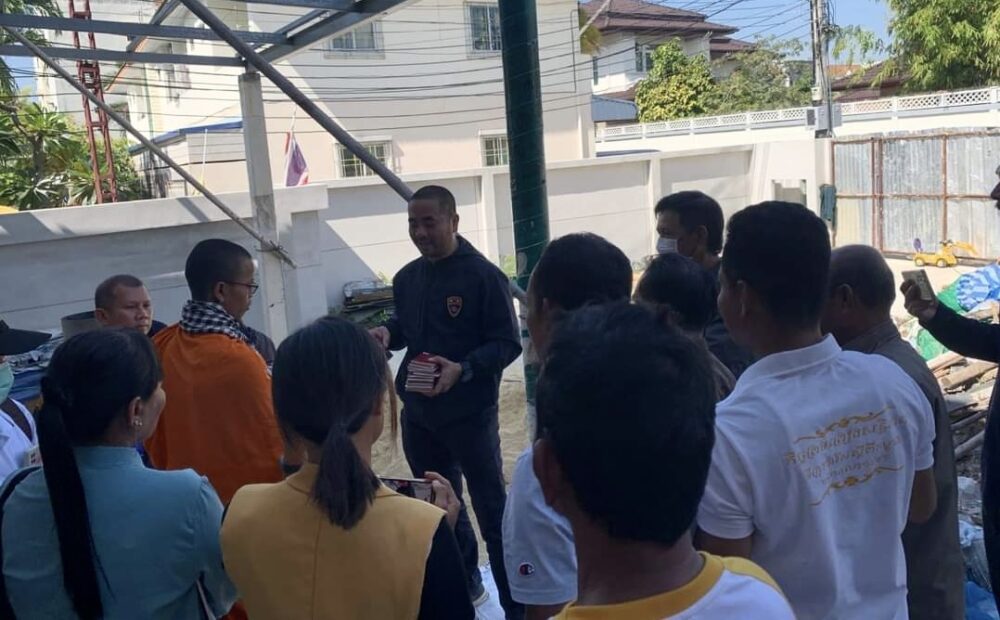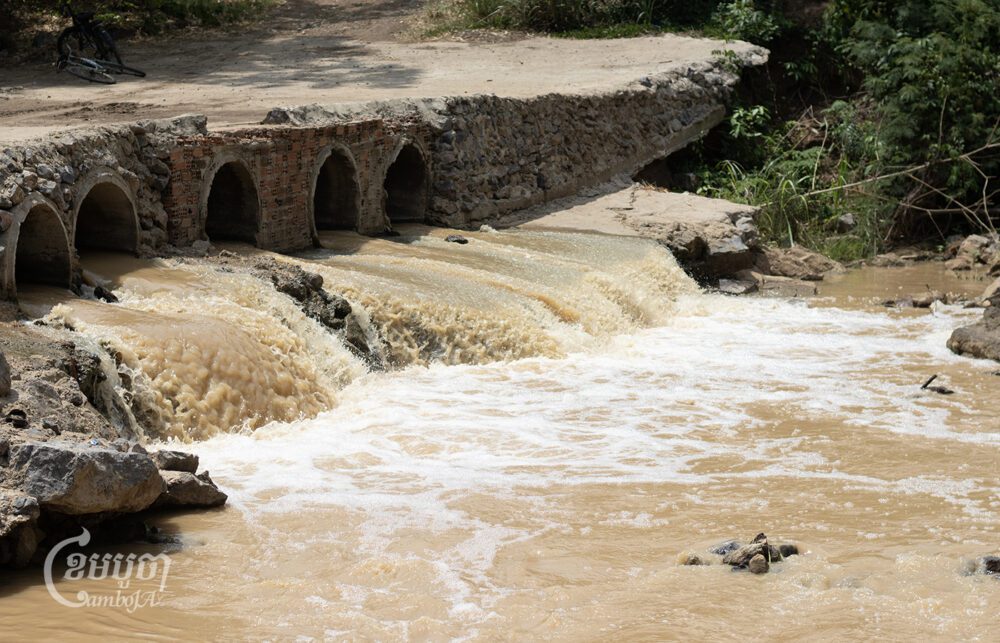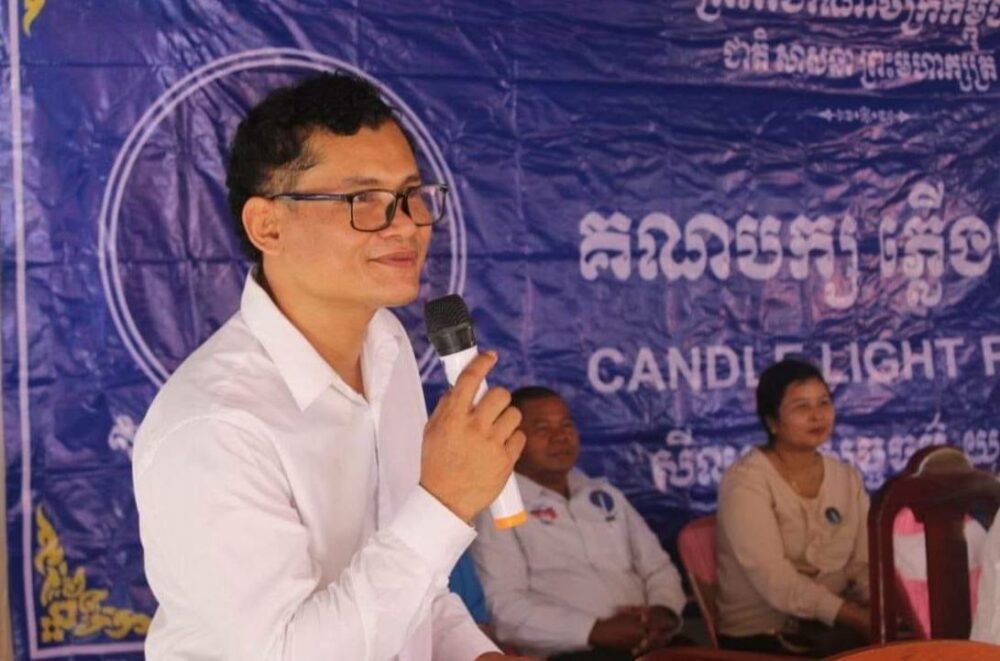Several civil society groups, media associations and journalists state that Cambodia’s press freedom remains restricted along with ongoing imprisonment of journalists. But, government officials rejected the allegation, insisting that the state of press freedom in Cambodia has improved.
Twelve media associations and NGOs commemorated World Press Freedom Day in Phnom Penh on May 2, with a panel discussion, which was also telecast live online.
In 2023, media association CamboJA recorded at least 32 cases of harassment against 59 journalists, which marks an 8.6% decrease in reported cases from last year, but a hike of 9.3% in the number of journalists affected. Legal action or threats against journalists rose from seven cases in 2022 to 15 cases in 2023, it said.
CamboJA executive director Nop Vy said press freedom is still challenging, especially with the shuttering of independent media outlets which produced comprehensive and incredible news. These include independent media Voice of Democracy (VOD), Lotus Radio, Rasmei Kampuchea newspaper, and the cessation of Phnom Penh Post’s print edition.
“What we are concerned about is we have seen declining media outlets which have the capacity to produce comprehensive stories […] professional journalists who can do comprehensive stories, with credible sources and data, make incredible news but this has declined following the shutdown of several media outlets,” he said.
“All these points urge us to find a way to address the issues that are challenging,” Vy added.

The Ministry of Information launched a report on the State of Press Freedom in Cambodia where 79.8% out of 341 journalists who were surveyed rated press freedom as “very good”. They claimed that journalists in Cambodia have “full freedom” to pursue their career, while 95% agreed that media diversity is contributing to the promotion of press freedom and freedom of expression.
“It is a pride of our country to personally evaluate the report on press freedom in Cambodia, where no foreigner speaks on behalf of Cambodian people, who know their own country’s press freedom situation,” Neth Pheaktra, Minister of Information, said during the launch of the report on April 30.
He asserted that in the last few years, there have been “no journalists who died for their profession”, nor have there been journalists who were “imprisoned for practicing professional ethics”.
There are about 2,000 registered traditional and new media outlets, including 1,000 websites, online TVs, and about 10,000 journalists in Cambodia.
In their annual publication, Reporters Without Borders and Cambodia Center for Human Rights said press freedom and freedom of expression continued to be undermined in Cambodia.
Replying to this, Pheaktra said, it was the right of those organizations to make such comments.
“Of course, it [media industry] cannot be perfect, it still has problems, for example, some journalists practice unethical journalism, as I’ve mentioned before [extortions]. What we protect is legitimacy and the implementation of professional ethics,” he added.
He said some journalists took to the profession for personal gains or sought bribes under the pretext of journalism or extorted money to not publish the information, which is a violation of professional ethics.

Information Ministry spokesperson Tep Asnarith, who attended the World Press Freedom Day celebration in Phnom Penh, echoed Pheaktra’s views, stating that “the situation of Cambodia’s press freedom is better”.
Cambodian Center for Independent Media (CCIM) media director Ith Sotheouth who shared a similar opinion with Nop Vy, stressed that the media landscape is restricted with limited freedoms.
“As a civil society organization working in the field of information, we also have research where independent journalists report on social, political or other major issues, but they too don’t have press freedom,” he said.
Sotheouth said some international research institutions have different assessments based on other indicators, such as the relevant legal framework and the diversity of the media. This diversity does not refer only to the number of media or type of media.
Camilla Ottonsson, head of Swedish Embassy in Phnom Penh, said the media and information ecosystem are essential in the current multi-phased challenges that are facing fundamental rights, as they are under threat.
The public is eager to read strong environmental stories that provide reliable information to help those living in Cambodia. “We would really like to call on all of your commitment and collaboration in ensuring those rights, freedom of expression, freedom of scientific research and access to choose sources of information,” Ottonsson said.
Dam Sosreineang, a 24-year-old who actively campaigns to protect the environment, told CamboJA that youth participation in reporting and protecting the environment is “very important for a democratic society”.
Sreineang has been involved and volunteered as a youth environmentalist since she was in secondary school, and became more active in 2020. She has observed that the local authority is not welcoming when youths visit the forest. It is even worse when they find illegal logging activities as the authority denies them.
“Last year, my team and I went to Prey Lang in Preah Vihear. Together with the Prey Lang community, we found about 200 illegal logging cases and reported them. But, the authorities said they [the cases] were not true.
“Thus, I think our participation in environmental issues is crucial,” Sreineang said.
She added that youths who actively care and participate in environmental issues often face threats and safety issues.
“For me, the first challenge is we don’t know how to contact the Ministry of Environment to get information and second, we face threats when we express our opinion through social media or in person,” Sreineang said.
She urged the government to encourage and allow more space for environmental youth activists to work because freedom of press is a “powerful tool” to ensure good governance in a democratic society, especially on environmental issues.

During the event, Ministry of Environment spokesperson Khvay Atitya said the government has increased the scope of spokespersons so that they can meet the needs of journalists.
“In the past, we have led journalists to examine and observe environmental issues, as well as report on environmental issues,” he said.
Responding to a question on why the ministry rejected civil society forestry reports, Atitya said those reports or data released by civil societies should be discussed with them in advance before they publish in order to obtain proper data.
“Regarding the report mentioned, please have a forum like we do for policy-making. The government always has all parties involved when drafting a policy or law,” he said.
Atitya also denied that environmental officials neglected their duties to look after the forest, leading to the destruction of the forest.

A freelance reporter of two years, Try Thaney, said he noticed many challenges facing reporters who report about environmental issues. These include a lack of cooperation by local authorities and a failure to respond by the Ministry of Environment.
“I think if the authorities really want sustainable and democratic development, they [authority] should be open-minded, not strict or threatening when the reporter goes on field report, to ensure that they feel safe,” Thaney said.
He also mentioned that when he reports about powerful people or tycoons, he feels the need to practice self-censorship on his stories.
He urged the authorities not to think of environmental reporters as opponents, he said. “Reporters bring the voice to the voiceless, especially indigenous people who have been affected in their community.”
In a separate meeting with media professionals and diplomatic representatives, outgoing US ambassador to Cambodia, Patrick W. Murphy, told reporters that he would not comment on the Ministry of Information’s report on press freedom in Cambodia.
However, on behalf of the US government, he said, protection of press freedom was “really important”, sharing that the reality around the world was that press freedom is in decline and under threat, including in Cambodia.
“We hope that all stakeholders including the government can support independent media and support information freedom and the ability of journalists to report even when it is critical and perhaps negative, as it holds the government accountable,” he said. “It is important for Cambodian people to hear all sides.”
Murphy added that during his mandate in Cambodia, he has seen the closure of the VOD, Cambodia Daily and other independent media sources, including RFA inside the country.
“I think all Cambodians miss those press outlets, they have good information and a variety of information. The more information, the better,” he said.
There is a lot of pressure on the environment, so people need to hear about illegal logging, corruption and climate change, because they have ideas. The government does not have a solution to everything.
“We need innovation and creativity from civil society, academia and journalists, citizens and the independent media can help facilitate that. So, it is a good result for everybody including the government,” Murphy said.
(Reporting by Khuon Narim, Sovann Sreypich, Ly Rosslan and Pou Soreachny)


